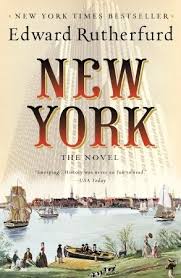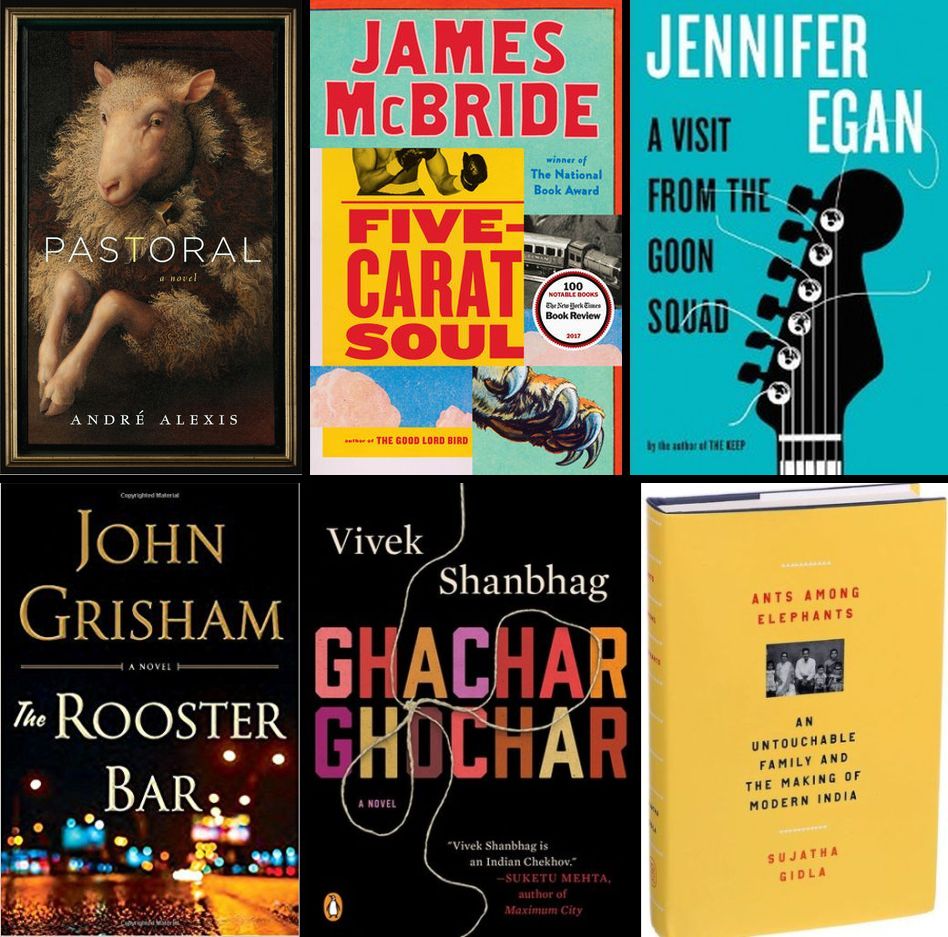Pastoral by André Alexis (Coach House Books, Toronto, 2014)
First book of Alexis’s quincunx (a set of five books)—this one a pastoral. Alexis’s goal is five books in five genres. A pastoral, thanks to Merriam-Webster is “a literary work (such as a poem or play) dealing with shepherds or rural life in a usually artificial manner and typically drawing a contrast between the innocence and serenity of the simple life and the misery and corruption of city and especially court life.” Pastoral fits the definition. It’s an easy read, with deceptively simple characters. It’s a book that could lead to many interesting conversations about God and nature and man.
Recommended.
Five Carat Soul by James McBride (Random House, 2017) Short Stories
Five Carat Soul contains seven short stories, two of which are broken into chapters. McBride’s stories are full of fun, quirky characters and history. They mostly center around ghetto life seen through the eyes of children, teens, and their parents. The scenes are “matter of fact” realism, with no maudlin appeal to the poverty of spirit and lack of money in the protagonists’ lives. The last set of stories, “Mr. P and the Wind”, told by animals, was unintelligible to me, so I stopped reading it. Recommended
The Rooster Bar by John Grisham (Doubleday, 2017)
Oh John, your last book, The Whistler, disappointed because you tipped the resolution of the plot in the first third of the book. The Rooster Bar disappoints because it is just not interesting.
Yes, Grisham is true to his genre of educating us about yet another folly of our society—this one involving for-profit law schools and the owners and loan companies who consume unsuspecting students and their bartered futures.
Not-recommended.
Ghachar Ghochar a novella, by Vivek Shanbhag (Penguin Books, 2013)
How money corrupts, taken to the most finite pettiness in a family. The name is a nonsense word for the string tie in pajama pants, and how, when it unties in bed, you can become all tangled in it. It’s a good metaphor for what happens when a family that is poor, but tidy, economical and close-knit, becomes all tangled up when money is easy. Status changes, relationships crumble, goodness is replaced not so much by evil as by neglect. At 118 pages, Ghachar Ghochar packs a punch.
Highly Recommended.
A Visit from the Goon Squad, by Jennifer Egan, BBC Audiobooks 2010
Egan’s newest book, Manhattan Beach, is a runaway best seller. A Visit from the Goon Squad seemed a good prep before visiting Beach. Now, I’m not sure I will ever read the new book. Truthfully, I listened to ¾ of Goon Squad and gave up—too confusing to be a good audio book. The plot and the characters jump all over the time sequence. The characters are mostly low-life denizens of the music business. Misogyny and amorality abound. Reminded me of Brent Easton Ellis.
Not recommended.
Ants Among Elephants: An Untouchable Family and the Making of Modern India By Sujatha Gidla, (Farrar, Straus and Giroux, 2017)
This was a wonderful surprise. Books about untouchables in Hindu cultures are like reading about mass murder—fascinating, but repulsive. The caste system in India, and all caste systems, represses lives on a micro and macro scale. And the lower down in the system, the more fascinating and awful life is. Untouchables are so low, they are not in the caste system. I expected this to be a memoir about the author’s life as an untouchable. Instead it was a memoir about her uncle, Satyam, one of the founders of the Naxalite Party in India. These are Maoist Communists, who continue as rebels today in rural East-Central India. I’ve read about Naxalites, but never the birth of the movement. This is a must-read for understanding one of the dynamics of modern India. An interesting fact—the untouchables are often well-educated due to the work of missionaries. Unlike the lower castes, untouchables are literate, sometimes with advanced degrees, and teach in the universities—to all castes. These positions gave Satyam and other Naxalites sway over impressionable students who they recruited.
Highly recommended.




















